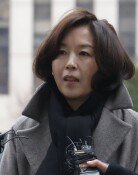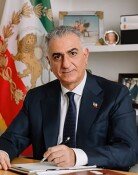Cheong Wa Dae Reserves to Accept NIS Chiefs Resignation
Cheong Wa Dae Reserves to Accept NIS Chiefs Resignation
Posted January. 17, 2008 07:22,
The presidential office of Cheong Wa Dae is at odds with the transition committee over National Intelligence Service Director Kim Man-bok resignation.
The transition committee said that to facilitate the investigation and judiciary processes, Kim needs to step down as soon as possible. Yesterday Cheong Wa Dae, however, reversed its previous stance of handling Kims resignation as early as possible, on the ground that it needs time to deliberate the issue internally.
This sudden change in stance may be a result of the two institutions differing understanding on the nature of the document leak. The underlying tension between the two, however, requires further explanation.
Kim Man-bok has been in important posts in the NIS during the Roh administration. As former spy chiefs unfortunate end in their career with the change of government has shown so far, the fact that sensational revelations could ensue after the investigation into the NIS chief explains the conflicting interest of the two institutions.
The Tug of War between the transition committee and Cheong Wa Dae
Soon after Kims admittance on Jan. 15 that he had leaked to the media the document logging the interview between him and Kim Yang Gon, director of the Unified Front Department of North Koreas ruling Workers` Party, one day before South Koreas presidential election, the presidential transition committee requested the prosecution to conduct prompt investigation.
A confidant of President-elect Lee Myung-bak said yesterday, If the prosecution finds it difficult to initiate an investigation into Kim on its own for whatever reasons, the transition committee is willing to file a suit against him in order to change the spy organizations customary practice of currying favor with the administration.
No doubt that the transition committee is harboring an expectation that the investigation into the nations spy chief could unearth clandestine information regarding President Rohs state affairs. In particular, Kim was the man in the behind- the- scenes negotiations leading to the second inter-Korean summit in October last year.
However, Cheong Wa Daes sudden announcement to reserve the decision to accept Kims resignation yesterday dampened the expectation. The presidential office does not deny the possibility of accepting Kims resignation in its entirety, yet it seems to be cautious to make a definitive decision at this moment.
It is said that the reversal in the Cheong Wa Daes position reflects President Rohs opinion. Some say that it is Rohs personnel management style not to dismiss, or hire, senior government officials based on the public sentiment. The issue itself should be the focus, not the public sentiment per se.
What does Cheong Wa Dae worry about?
A more widely-held analysis, however, points to the fact that the presidential office is concerned about cascading negative effect of Kims investigation on the inter-Korean summit, and thus the inter-Korean relation as a whole.
The sudden achievement of the second inter-Korean summit has generated continuous suspicions in the political circle over possible back-door dealing.
Kim explained that the purpose of his visit to the North was to erect a commemorative monument in front of a tree, which the two leaders of Koreas had planted at the end of the summit last year. Yet his visit just a day before the presidential election was not accepted by many without raising further suspicion that it intended to influence the outcome of the election, or possibly to discuss a visit by Kim Yong Nam, the president of the Presidium of the Supreme Peoples Assembly of North Korea.
A NIS source said, Whatever the agenda of the visit was, there must be North Koreas critical interest at stake. With its GDP going negative in 2006, would money not matter most to the North?
Whatever the real purpose of Kims visit was, a revelation through the prosecutorial investigation would put Cheong Wa Dae, waiting for transition, in a politically unfavorable position.
Kims moves after the presidential election might also have unsettled Cheong Wa Dae. A member of the transition committee said, The NIS chief requested a one-on-one meeting with the president-elect, saying that he needs to report something in person.
Kim has also attempted to have a meeting with Lee Myung-baks close allies.
A North Korea expert said, Cheong Wa Dae will have to weigh the acceptance of Kims resignation against the possible disclosure of confidential information that the investigation on Kim could dig up.
kyle@donga.com jin0619@donga.com







